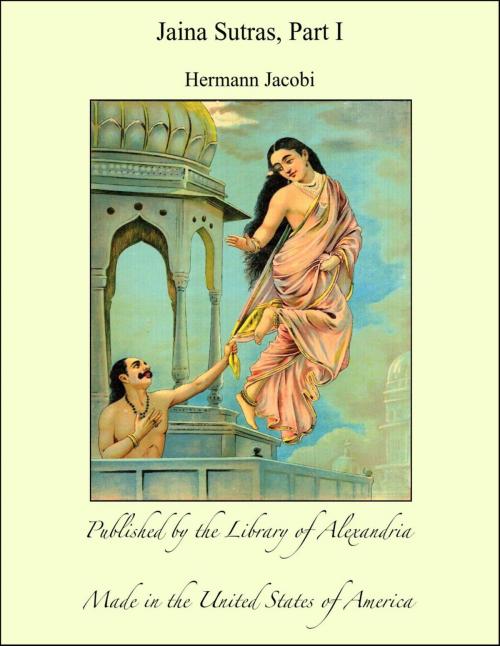| Author: | Hermann Jacobi | ISBN: | 9781465578228 |
| Publisher: | Library of Alexandria | Publication: | March 8, 2015 |
| Imprint: | Language: | English |
| Author: | Hermann Jacobi |
| ISBN: | 9781465578228 |
| Publisher: | Library of Alexandria |
| Publication: | March 8, 2015 |
| Imprint: | |
| Language: | English |
THE origin and development of the Gaina sect is a subject on which some scholars still think it safe to speak with a sceptical caution, though this seems little warranted by the present state of the whole question; for a large and ancient literature has been made accessible, and furnishes ample materials for the early history of the sect to all who are willing to collect them. Nor is the nature of these materials such as to make us distrust them. We know that the sacred books of the Gainas are old, avowedly older than the Sanskrit literature which we are accustomed to call classical. Regarding their antiquity, many of those books can vie with the oldest books of the northern Buddhists. As the latter works have successfully been used as materials for the history of Buddha and Buddhism, we can find no reason why we should distrust the sacred books of the Gainas as an authentic source of their history. If they were full of contradictory statements, or the dates contained in them would lead to contradictory conclusions, we should be justified in viewing all theories based on such materials with suspicion. But the character of the Gaina literature differs little in this respect also from the Buddhistical, at least from that of the northern Buddhists. How is it then that so many writers are inclined to accord a different age and origin to the Gaina sect from what can be deduced from their own literature? The obvious reason is the similarity, real or apparent, which European scholars have discovered between Gainism and Buddhism. Two sects which have so much in common could not, it was thought, have been independent from each other, but one sect must needs have grown out of, or branched off from the other. This â priori opinion has prejudiced the discernment of many critics, and still does so. In the following pages I shall try to destroy this prejudice, and to vindicate that authority and credit of the sacred books of the Gainas to which they are entitled. We begin our discussion with an inquiry about Mahâvîra, the founder or, at least, the last prophet of the Gaina church. It will be seen that enough is known of him to invalidate the suspicion that he is a sort of mystical person, invented or set up by a younger sect some centuries after the pretended age of their assumed founder.
THE origin and development of the Gaina sect is a subject on which some scholars still think it safe to speak with a sceptical caution, though this seems little warranted by the present state of the whole question; for a large and ancient literature has been made accessible, and furnishes ample materials for the early history of the sect to all who are willing to collect them. Nor is the nature of these materials such as to make us distrust them. We know that the sacred books of the Gainas are old, avowedly older than the Sanskrit literature which we are accustomed to call classical. Regarding their antiquity, many of those books can vie with the oldest books of the northern Buddhists. As the latter works have successfully been used as materials for the history of Buddha and Buddhism, we can find no reason why we should distrust the sacred books of the Gainas as an authentic source of their history. If they were full of contradictory statements, or the dates contained in them would lead to contradictory conclusions, we should be justified in viewing all theories based on such materials with suspicion. But the character of the Gaina literature differs little in this respect also from the Buddhistical, at least from that of the northern Buddhists. How is it then that so many writers are inclined to accord a different age and origin to the Gaina sect from what can be deduced from their own literature? The obvious reason is the similarity, real or apparent, which European scholars have discovered between Gainism and Buddhism. Two sects which have so much in common could not, it was thought, have been independent from each other, but one sect must needs have grown out of, or branched off from the other. This â priori opinion has prejudiced the discernment of many critics, and still does so. In the following pages I shall try to destroy this prejudice, and to vindicate that authority and credit of the sacred books of the Gainas to which they are entitled. We begin our discussion with an inquiry about Mahâvîra, the founder or, at least, the last prophet of the Gaina church. It will be seen that enough is known of him to invalidate the suspicion that he is a sort of mystical person, invented or set up by a younger sect some centuries after the pretended age of their assumed founder.















